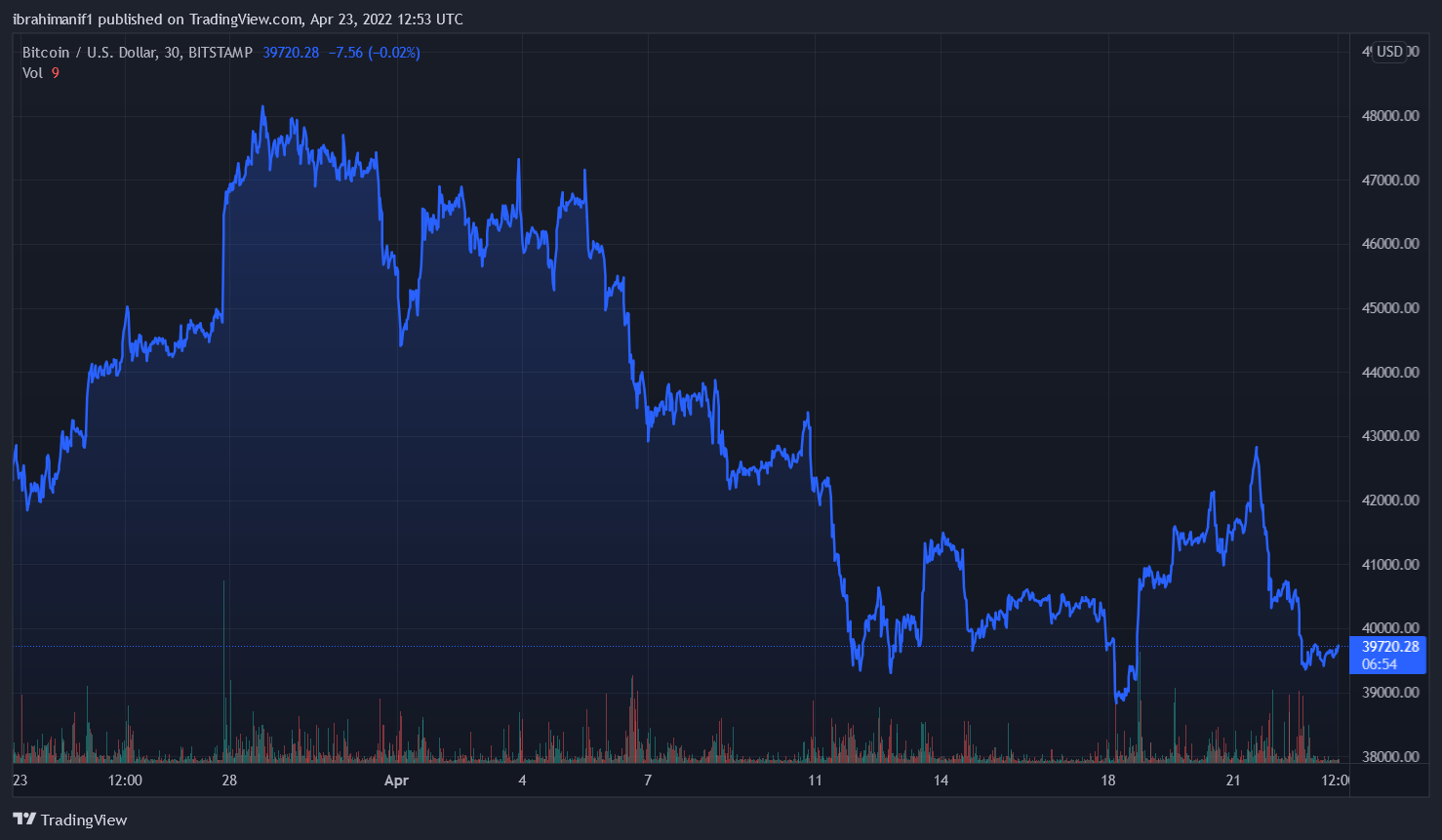The story of MicroStrategy CEO Michael Saylor buying Bitcoins aggressively has continued to make headlines over the last two years. However, according to one allegation, Mr. Saylor may be dumping his thousands of Bitcoins behind your back.
MicroStrategy, a Bitcoin-accumulating business intelligence software company, is known to have 129,218 Bitcoin in its possession. This is estimated to be worth $6 billion (at the current price). MicroStrategy is the largest publicly traded BTC holding firm.
On multiple occasions, CEO Michael Saylor stated that the corporation has no plans to sell the king currency and that it intends to keep Bitcoin for the long term.
Michael Saylor’s Microstrategy has been accused of selling thousands of bitcoins, according to an unusual Twitter account and at least one Medium article. Indeed, according to one claim, at least 8000 bitcoins have been sold so far through multiple wallets and exchanges.
Microstrategy Secretly Selling?
The Twitter user identifies what he believes to be the Microstrategy main address and reveals that BTC has been routed to exchanges through a secondary address.
More than 1500 Bitcoin were transmitted to secondary addresses in recent transactions from the main custodial wallet. Bitcoin was allegedly transmitted from their main address to an address that sold BTC on controlled exchanges like Coinbase and Okex. The addresses that were associated, or rather linked, were as follows:
- Main custodial address: 1P5ZEDWTKTFGxQjZphgWPQUpe554WKDfHQ
- Secondary custodial address: 1FzWLkAahHooV3kzTgyx6qsswXJ6sCXkSR
Given MicroStrategy’s massive BTC acquisition, the amount sold now pales in comparison to the company’s entire holdings. But, as the Twitter user pointed out, “selling $63 million worth of Bitcoin is a thing, and since they announce their purchases, they should announce their selling activities as well.”
Related article | Does MicroStrategy’s Michael Saylor Not Support Bitcoin-Backed Bonds?
Mr. Whale alleges in his research that Saylor has a history of questionable business practices. He stated that, while he encourages everyone to participate in the Bitcoin market, he has been dumping his holdings throughout this time. Mr. Whale mentioned the dot-com boom, which lasted five years starting in 1995, when discussing his previous dubious practices.
Mr. whale writes:
His investment failures came from years of negligent accounting practices, fraud, and overall terrible leadership. It’s clear his companies valuation is solely based on his ability to attract hype by engaging in popular “trends”, which we saw with their eagerness to be at the center of the dot-com bubble, and now with the Bitcoin bubble.
He noted that the Microstrategy CEO moved from slamming Bitcoin to predicting that it will hit $1 million, which he described as suspicious. Mr. Whale stated that he aims to create a new company and pay directors in Bitcoin as part of his escape strategy. Saylor wants to save face by doing this approach rather than selling his Bitcoin with the SEC’s notice, according to the Bitcoin critic. He also stated that the former would prevent him from being a villain in every trader’s story.
Is The Narrative True?
Microstrategy held roughly 129 thousand bitcoins as of April 4 this year, which is pretty similar to the amount in the wallet in issue if a few thousand bitcoins were indeed sold.
When you click on the address, a list of transactions emerges, and it’s clear that this wallet has been selling bitcoin in varying sums.

BTC/USD slips below $40k. Source: TradingView
However, a closer examination of this address reveals that the first bitcoin to be sent to it was received on February 10, 2019. This differs from Microstrategy’s first bitcoin purchase, which occurred on August 11, 2020.
The sum purchased was 21,454 bitcoins, therefore if the wallet in issue is examined for this specific period in time, it can be observed that it possessed roughly 56 thousand bitcoins, which is significantly more than Microstrategy’s first buy.
Microstrategy and Michael Saylor appear to have been trolled – most likely not for the first and almost certainly not the last time. It would have been extremely simple for this accuser to dig a little deeper in order to support their case – they may not have had the time or knowledge to do so.





